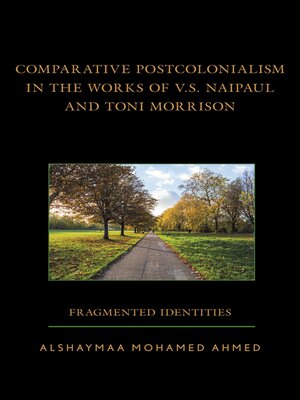Comparative Postcolonialism in the Works of V.S. Naipaul and Toni Morrison
ebook ∣ Fragmented Identities
By Alshaymaa Mohamed Ahmed

Sign up to save your library
With an OverDrive account, you can save your favorite libraries for at-a-glance information about availability. Find out more about OverDrive accounts.
Find this title in Libby, the library reading app by OverDrive.



Search for a digital library with this title
Title found at these libraries:
| Library Name | Distance |
|---|---|
| Loading... |
Comparative Postcolonialism in the Works of V.S. Naipaul and Toni Morrison: Fragmented Identities begins with an overview of its theoretical framework, highlighting the intersectional relationship between postcolonial literature and comparative literature. Tracing selected novels by Naipaul and Morrison, the book takes, as a starting point, Fanon's three-phase journey of the decolonizing process. In the first phase of mimicry, Naipaul's and Morrison's earlier novels represent the assimilation of indigenous people into dominant hegemonic cultures. The second phase is envisioned as the re-narration or re-interpretation of the past and old legends of indigenous culture. Morrison succeeds in asserting that her ancestors' past is the only way to celebrate a cultural identity, but Naipaul tends to criticize and neglect his past and his original, indigenous culture. The third phase marks the emergence of a revolutionary literature, in which Naipaul and Morrison guide their people to hybridity as a new way of becoming and resisting the hegemonic dichotomies in dominant societies.







